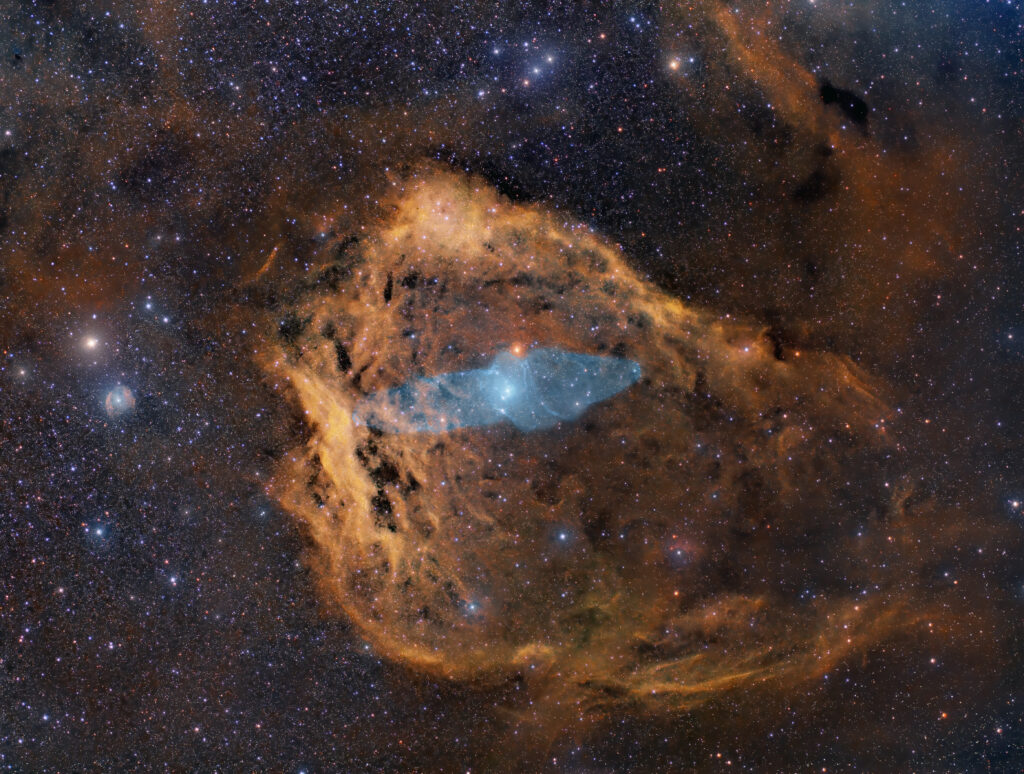Sh2-129, Ou4 in SHO palette
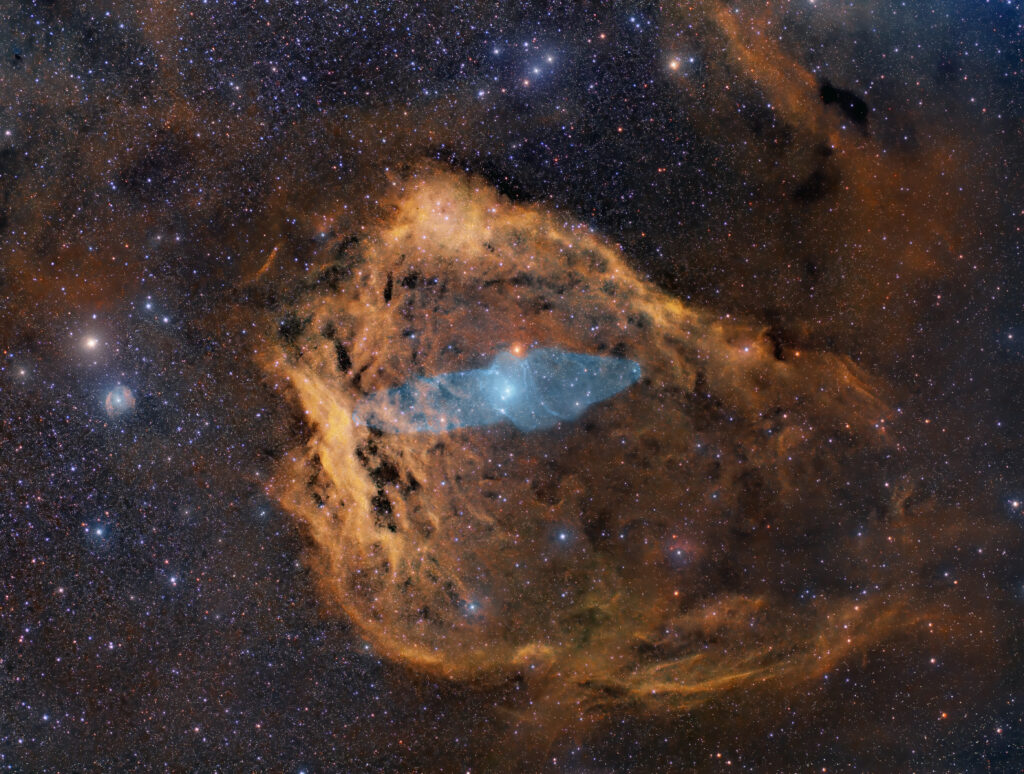
Sh2-129 emission nebula presents an irregular ring-arch form which resemble a figure of a flying bat, and according to Blitz et.Al. is situated at a distance of about 400 parsec or 1300 light-years.
According to Dobashi and collegues the region sourroundig Sh-129 is particularly rich of molecular clouds, first among all the whide obscure nebulositys system occulting the Milky Way in the direction of Cefeus; cfr. Dobahashi K. et Al., 1994 “Molecular Clouds in Cygnus. I. A Large-Scale 13CO Survey” – https://ui.adsabs.harvard.edu/abs/1994ApJS…95..419D/abstract
George Helou and collegues [ https://ui.adsabs.harvard.edu/abs/1988iras….7…..H/abstract ] studied the infrared radiation source IRAS 21168+5948 which coordinates coincide with the CO emission region, as just introduced within Avedisova Star Formation regions Catalogue; cfr. Avedisova V. S., 2002 “A Catalog of Star-Forming Regions in the Galaxy” in Astronomy Reports, vol.46 n.3: 193 – 205.
Within Sh2-129 center, recording in Oiii narrowband, is possible to enhance the vision of Ou4 nebula, whose form gave the name of squid nebula.
Discovered in 2011 by French astro-imager Nicolas Outters, the Squid Nebula’s alluring bipolar shape is distinguished by the telltale blue-green emission from doubly ionized oxygen atoms. Though apparently completely surrounded by hydrogen emission region Sh2-129, the true distance and nature of the Ou4 have been difficult to determine.
Recent investigation suggests Ou4 really does lie within Sh2-129 some 2,300 light-years away. Consistent with that scenario, Ou4 would represent a spectacular outflow driven by HR8119, a triple system of hot, massive stars seen near the center of the nebula.
The truly giant Squid Nebula would physically be nearly 50 light-years across.
This work is the result of personal SHO records using William Optics Redcat 51 and ASI1600mm Pro under Bortle 6 sky in Livorno – Italy (home balcony) with integration of records focused about Oiii signal obtained by Takahashi FSQ-106EDX4 and Proline FLI PL16083 camera retrieved from Telescopelive.
Data framelists set available:
here for WO51,
and here for Takahashi106
PixInSight cored workflow for generate 2 distinguished single channel SHO masters, linear-fit by Takahashi Oiii master, each pair blended by pixelmath within final S H and O masters, channel-combined in the SHO integration.
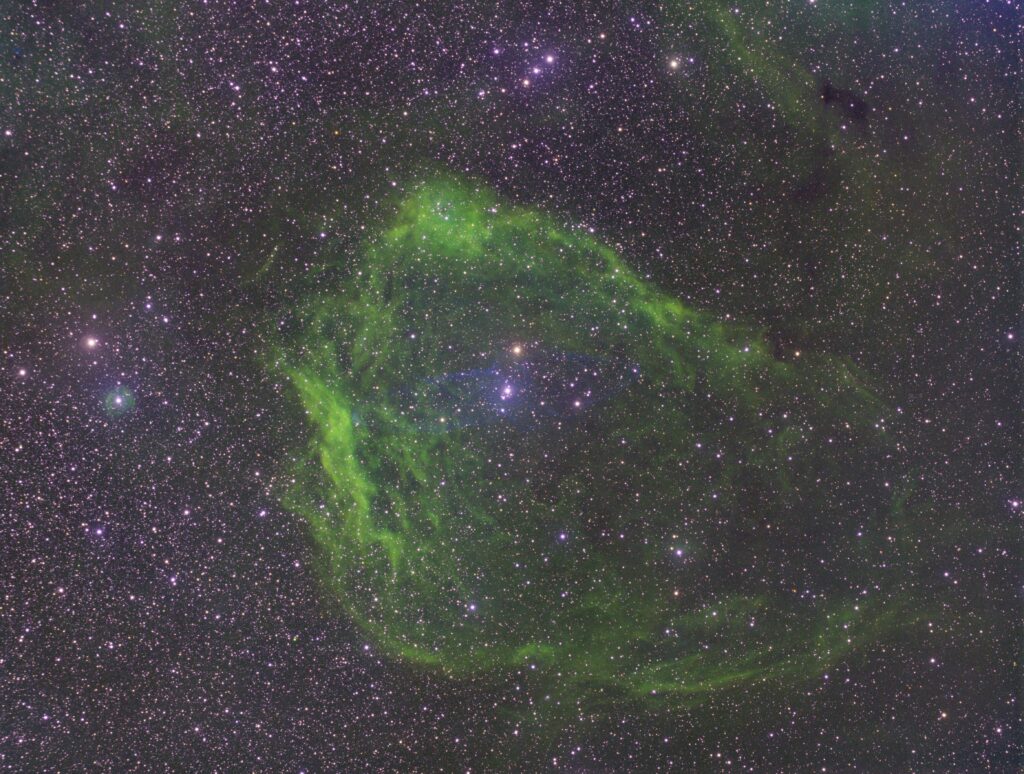
Normal narrowband workflow post-proccessing followed ‘till reaching an SHO starless
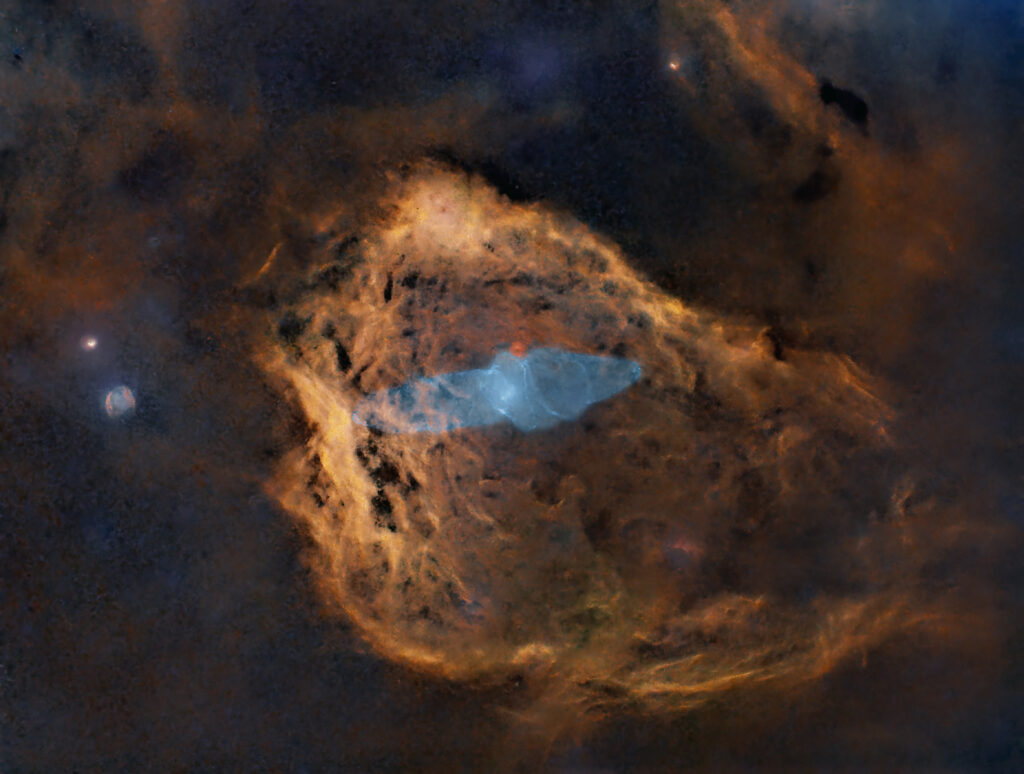
and SHO stars separated masters.
The same workflows I took for RGB channels, with the focus on star – separated from starless final integration to be used for final image composing.
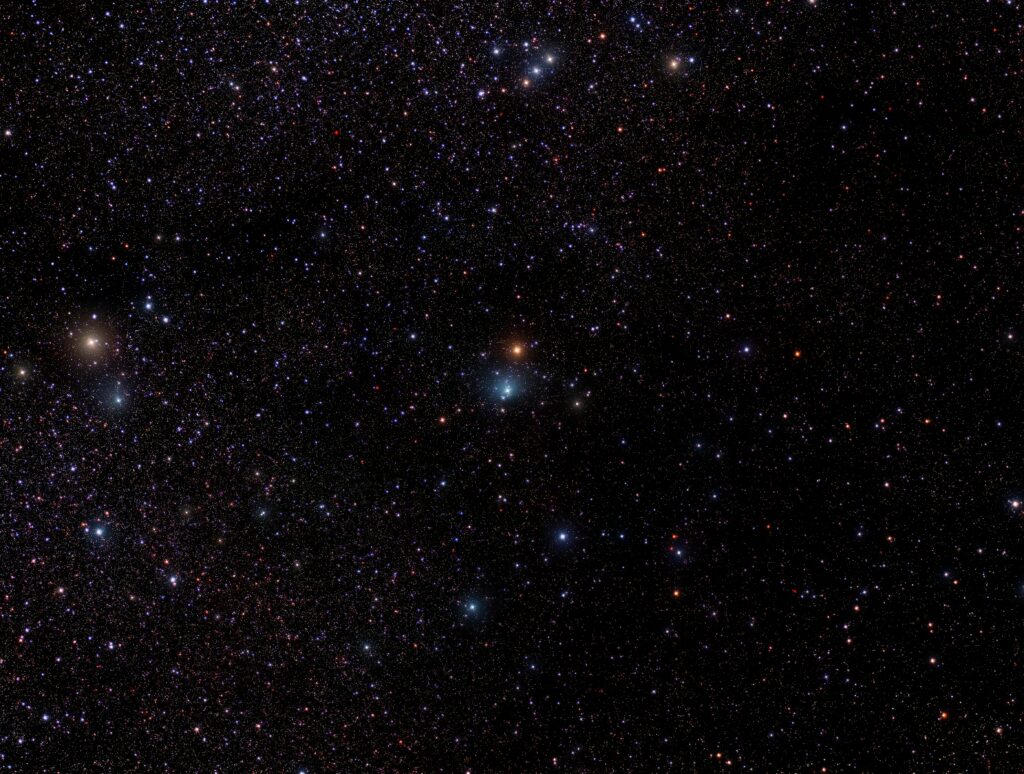
I then integrated in Photoshop by screen blending mode after necessary fixing and adjustements.
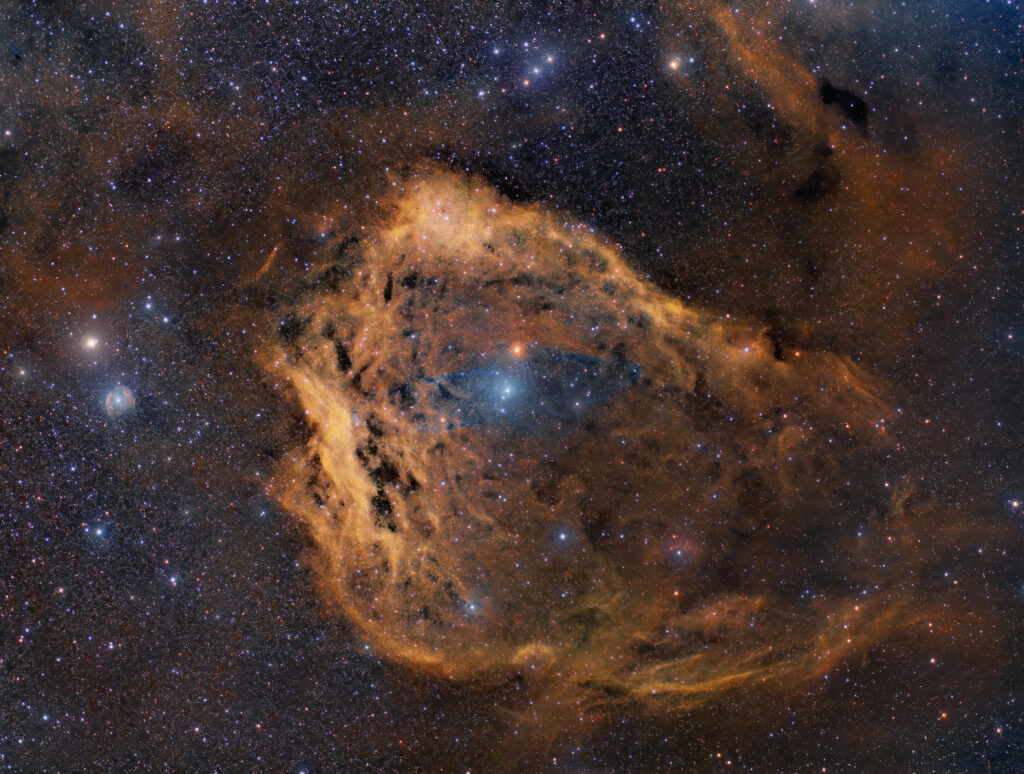
Parallely, the same workflow I made for Oiii master, using Oiii starless for enhancing Ou4 structure, luminosity and tones, in Photoshop by adjustements and colorizing filtered layer.
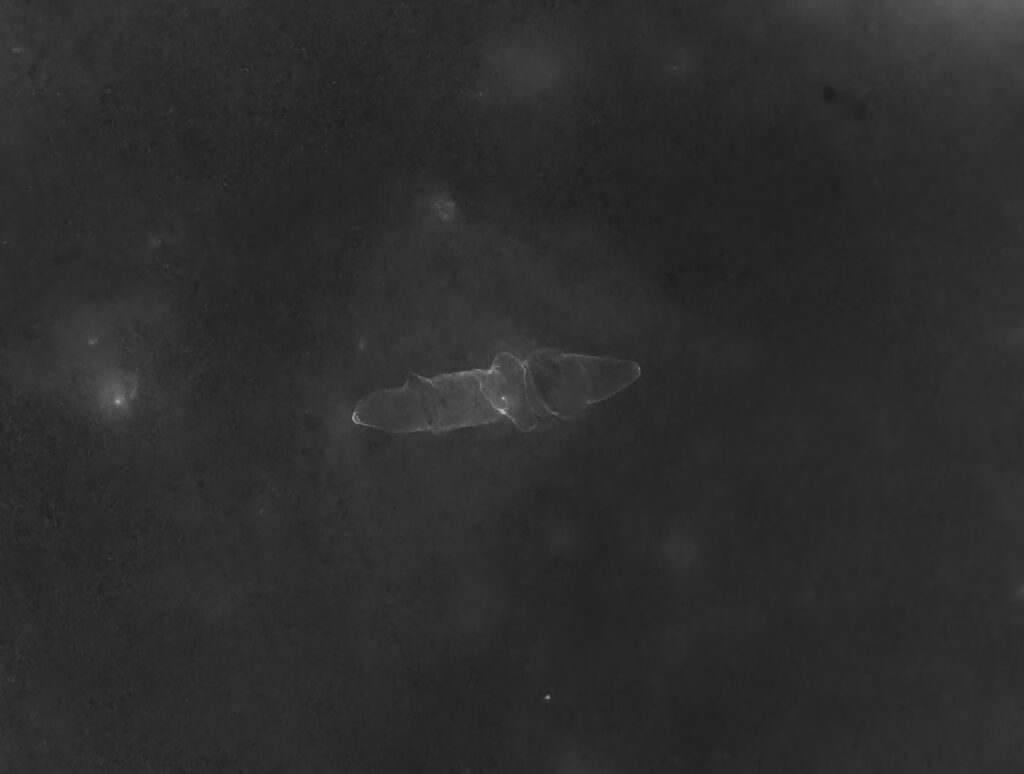
Integration of Oiii starless channel within SHO master enhanced luminosity, saturation and structure of Ou4 whole nebula.
